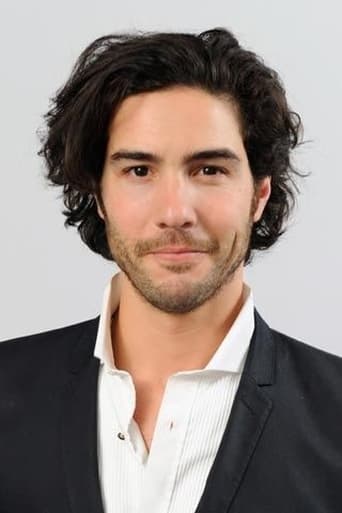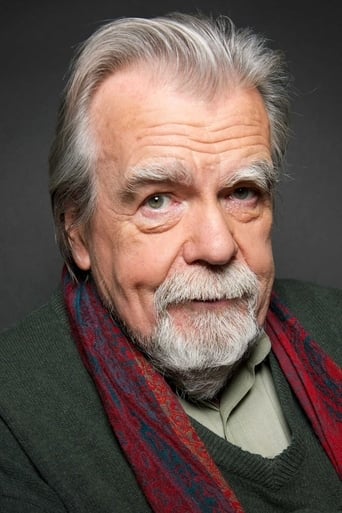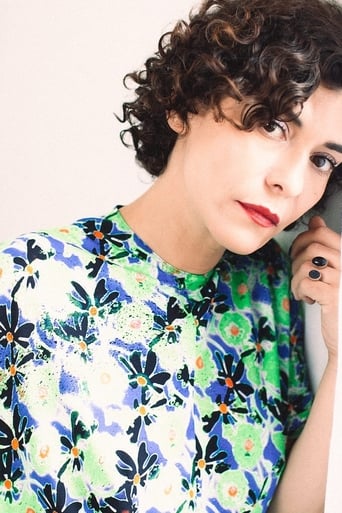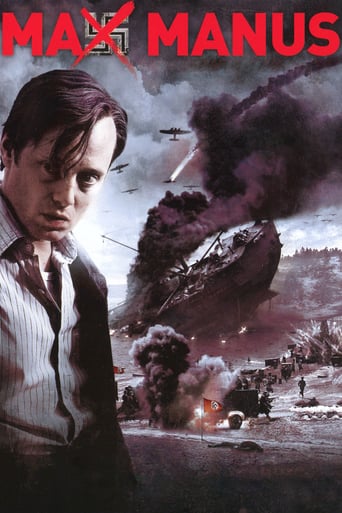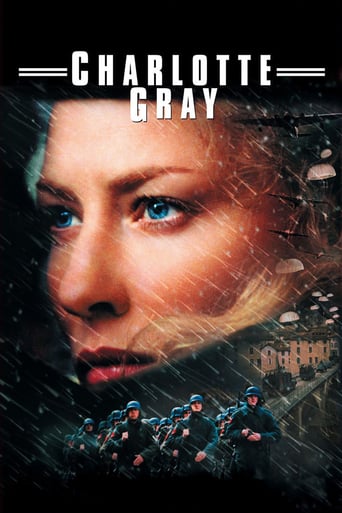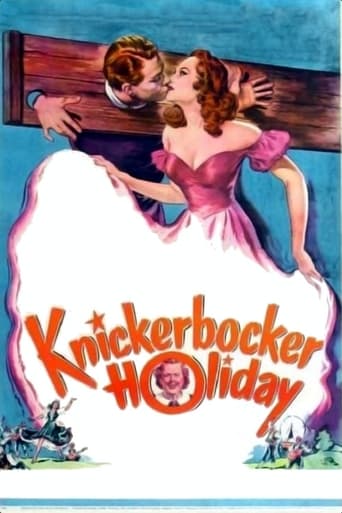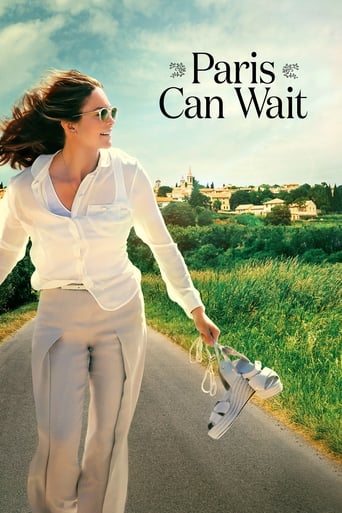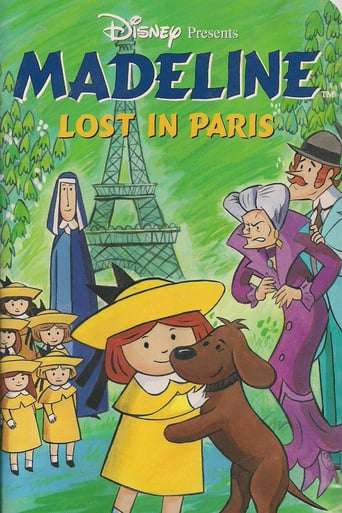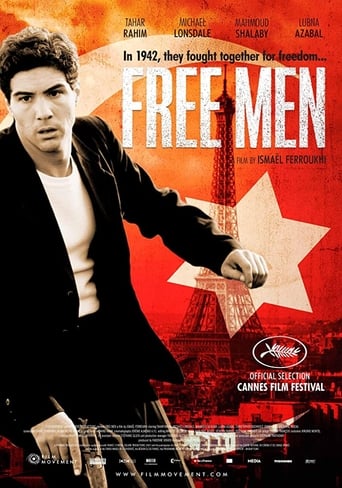
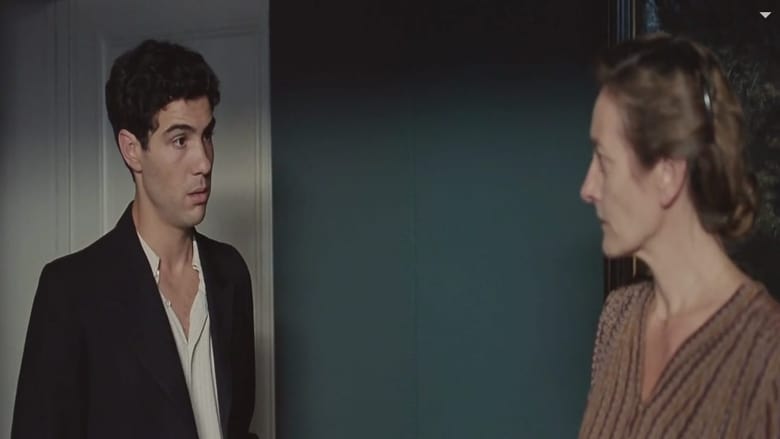
Free Men (2011)
In Paris during WWII, an Algerian immigrant is inspired to join the resistance by his unexpected friendship with a Jewish man. Based on not very known facts about the Muslim community in Paris during WWII, when the Paris Mosque and its dynamic leader played a pivotal role in supporting the resistance and rescuing Jews.
Watch Trailer
Cast


Similar titles
Reviews
FREE MEN is an attempt to add a multi-cultural element to the story of the French Resistance, by focusing on its North African component and (not entirely believably) suggesting it was a precursor to the later resistance struggle by Arabs against the French for Algerian independence. The plot is a classic as a self-interested Arab petty crook in Paris is caught by Vichy cops and forced to infiltrate the Resistance only to discover that their cause is worth fighting for. This allows for lots of cameos by historical figures like Salim Halali (an Arab Jewish singer and homosexual) and Si Kaddour Benghabrit (who ran the Paris mosque and helped Jews escape the Holocaust). Unfortunately the film lets itself down by being so one note; it identifies the Gestapo with the immigration police, ignores the use of North African bounty hunters by the Germans to catch Jews in return for cash, and features only one Arab who is anti-semitic and anti-homosexual...and who is (spoilers) a traitor anyway. Restoring a forgotten history is laudable, but ignoring its negative aspects is not. The film itself is cleanly shot and full of good actors, even if the small budget means that not much happens (which is probably quite realistic) and the script doesn't provide much for the actors to work with.
The setting is Paris during the Nazi Occupation of World War 2. Tahar Rahim, after a powerful performance in "The Prophet", stars here as a young Algerian émigré making his living selling cigarettes and sundries on the black market. Rahim reminds me of a young Richard Gere and in my opinion has the potential to be a powerhouse in film.During a police raid, he is arrested but offered his freedom if he'll act as an informant at the local mosque. He agrees but is not very good at it and soon realizes his allegiance is more with the Muslim community than it is with the Vichy government.When a young woman, played by Lubna Azabel, who is being hidden at the mosque, and to whom Rahim is attracted, is arrested by the police and executed Rahim begins to work for the Resistance Movement, along with his cousin.As he soon learns, the director of the mosque, played by the wonderful actor Michael Lonsdale, is helping North African Jews, and others, obtain fake identities and sheltering them from the Nazis. This part of history I was not aware of and it was quite interesting to me.Rahim befriends an enormously talented local singer, played by Mahmoud Shalaby, and tries to protect him when the Nazis find out he is Jewish. The singing is the film is quite mesmerizing and adds to the enjoyment considerably.When Rahim's Resistance cell is uncovered he must, along with his compatriots, battle for his survival.In summary, I found this film to be well paced and quite engrossing, with enjoyable music and offers a lesson in history.
Ismaël Ferroukhi both wrote (with Alain-Michel Blanc) and directed this emotionally charged story based on fact and peppered with real and fictitious characters to drive home the point of the film - that differences among peoples become erased in response to a common enemy. This is a powerful little film made more radiant because of the brilliant cast.In German occupied Paris in WW II there is a segment of Algerian and Moroccan immigrants who survive on the fringes largely due to people like the unemployed Younes (the handsome and gifted French actor of Algerian origin Tahir Rahim) who runs a black market selling cigarettes, tea, coffee and food to his fellow Algerians - until he is caught by the police. Instead to going to prison he is set up to spy on the Paris Mosque, thought by the police to be center for the Mosque authorities, including its rector Ben Ghabrit (Michael Lonsdale) of aiding Muslim Resistance agents and helping North African Jews by giving them false certificates. At the Mosque, Younes meets the Algerian singer Salim Halali (Mahmud Shalaby), and is moved by Salim's beautiful voice and strong personality. When Younes discovers that Salim is Jewish, he stops collaborating with the police and gradually transforms from a politically ignorant immigrant black marketeer into a fully-fledged freedom fighter. It is this friendship between Younes and Salim that shapes the changes in Younes character, allowing him to move form a non-political opportunist to a committed freedom fighter.There are many side stories that occur - the influence of the Gestapo, the presence of the mysterious Leila (the profoundly gifted and beautiful Lubna Azabal), Vichy collaborators, Muslims, Jews, Christians, resistance fighters, communists, spies, snitches, fugitives, traitors, criminals, children and innocents - with the theme of discovered camaraderie emerging slowly but surely. This is an inspired film that opens windows to parts of WW II history little known to the general public, and at films end the history of the post war activities of those character who are real is revealed, with 'Younes' being described as the general representative of all the Algerian and Jewish immigrants. The score is filled with the singing of Salim/Mahmud Shalaby that adds a definite feeling of authenticity to the film. In French and Arabic with English subtitles. Grady Harp
Among the Righteous Among Nations at Yad Vashem, Israel's official memorial of Ha Shoah or Holocaust, the names of Arabs who saved Jews are absent. Even Morocco's Mohammed V, who, defying Vichy authorities, put his 650,000 Jewish subjects under the Sherifian throne's protection and saved them not only from wearing the dreaded Yellow Star but as a community, has no place among the Righteous. In his own way, Ismaël Ferrouki is trying to correct this historical omission.The Franco-Moroccan film maker's Les Hommes Libres or Free Men opened quietly at New York's Quad Cinema on Friday March 16. The film is set in Paris at a time of a great moral dilemma when Jews were being rounded up by the French police for extermination camps. And in this dark hour of French indifference to these arrested, the rector of la Mosque de Paris Si Kaddour Ben Ghabrit, subtly played by Michel Lansdale, provided certificates to mainly, but not exclusively, to North African Jews, which attested that they were Muslims. Bengharit plays a cat-and-mouse game with the Nazi authorities and the collaborationist Pétain representatives to give aid and comfort to Jews, whom, as he says, "are one of us."The presence of North African Jews and Muslims in France has much to do with French colonialism. For, Algeria, Morocco and Tunisia were under France's control; the need for workers attracted North Africans to metropolitan France; money earned there would be sent back to support families.Ferrouki's conceit has become controversial; his theme is based on oral history, anecdotes and some written testimony. Algerian-born Jewish historian Benjamin Stora has acted as an adviser on Free Men. Owing to the current climate of fear created since 9/11 and growing criticism of Israel, the very idea of a picture about Muslim saving Jews might seem aberrant if not perverse. And yet, the wife of Holocaust survivor and Peace-prize Nobelist Élie Wiesel, herself saved by Tunisian Muslims has unsuccessfully appealed to have her benefactor added to the list of the Righteous. The film's moral authority centers around friendship among Ben Ghabrit, Younis , a black marketer, admirably portrayed by Tahir Rahm, and the Algerian Jewish singer Salim Halali (Mahmoud Shalaby, an Israeli Arab) who has the voice of an angel.Halali sings in Arabic. His songs' lyrics help move the film's narrative; they set the mood of war's terrors and dangers even though they are at heart love songs. To Americans, Jews singing in Arabic may seem an anomaly. Nonetheless, the Sephardim in North Africa spoke Arabic. Unfamiliar to Americans as well are the names, say, of the Algerian Enrico Macias, the blind Reinette l'Oranaise and the Moroccan cantor Sami El Maghribi, who sang in Arabic.Running through Free Men is the thread of resistance against Fascism and colonialism among a handful of French and Algerians. Some knowledge of French and North African history would be helpful here: the name of Messali El Hadj, considered the father of Algeria's nationalist movement, is central to Franco-Algerian resistance in fighting for democracy. El Hadj's manifesto considered Jew and Muslim equal and part and parcel of the Algerian community. His unfulfilled hope was that at war's end France would accord Algerians full and equal rights.Younes slowly comes around to joining the resistance. He sees in Salim, not a Jew, but an Algerian soul mate, a mirror of his own identity. Ben Ghabrit provides Salim the means of survival in order to outwit the French police after his arrest.The film's story is told with simplicity and convincing honesty. An old Moroccan palace was transformed into the Paris Mosque.Les Hommes Libres should be seen if only to see a slice of North African Jewish and Muslim fraternity. Perhaps, it is hoped, it may spur the American film goer to read about North African history.


